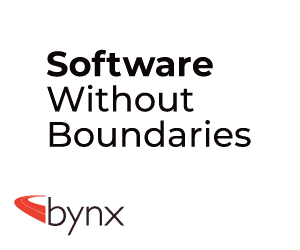
CBVC Vehicle Management recently announced the release of a whitepaper discussing the various methods of procuring business contract hire funding for vehicles, and the benefits and drawbacks of each method.
Entitled ‘The Benefits of Multi-Bid Vehicle Funding’, the paper concluded that the multi-bid acquisition method is the clear winner in terms of cost savings and ease-of-administration. For fleet operators looking at contract hire as the primary funding approach, there are three ways to procure one:
- Sole-supply – A business procures quotes from a single leasing company, which can be easier to administer but often fails to provide the most cost-effective solution;
- Multi-supply – A business can competitively procure leasing quotations form more than one leasing company;
- Multi-bid – A business can competitively procure quotes from one fleet management company or leasing broker with a panel of approved leasing companies.
The paper revealed that in the case of sole-supply acquisition, the fleet operator would benefit from having a single master lease contract to administer, a reduction in invoices, a single point-of-contact relationship, full access to the leasing market and the ability to leverage opportunities using full fleet volumes.
However, the report also detailed how the fleet operator would be negatively impacted by exposure to short-term pricing strategies from the lender, rate fluctuation due to residual value (RV) reviews, a limited recourse on pricing variations, a dependency on one source of funding and a limited view on different market practices.
Furthermore, no single leasing company can offer the best price on all brands; nor will a single leasing company offer the best processes and quality.
Founded in 1998, CBVC operates as a leasing broker and fleet management company. It offers a range of services including vehicle finance, vehicle disposal, car and van rental, maintenance and repair services, vehicle tracking and telematics and grey fleet management.
Lenders’ preference for sole-supply
In an interview with Asset Finance International, Keith Allen (pictured above), independent consultant and author of the report, explained: “Lending companies will always prefer a sole supply approach as their primary option, but they’re usually pragmatic enough to realise they can’t completely rely on it. From what I’ve seen, the top five or six major leasing companies are quite happy using brokers, and I think that most of them now depend on brokers and third-party sales channels such as white-label agreements for well over 50% of their business.
“From a lenders’ perspective, the cost of having a direct sales force to facilitate a sole supply approach is unbelievably high, and so it is generally perceived that brokers represent a channel to market that lending companies couldn’t otherwise manage themselves.
The multi-lender methods
In comparison to sole-supply, multi-supply acquisition comes with its own range of advantages and disadvantages; for example, while it does offer a good view of different market practices, it also results in multiple contracts, invoices and relationships to administer and can result in variable service levels.
Due to the fundamental similarities between multi-supply and multi-bid acquisition they share a number of advantages including the ability to unbundle services, cost optimisation on each new vehicle order, more consistency in TCO with no rate increases in the future.
Other similarities between the two include:
- An expanded scope of market information and the sharing of best practices;
- The flexibility to include the best leasing companies in each market;
- Financial risk and dependency mitigation (multiple rates from different leasing companies);
- The customer would be splitting the full leverage over the selected vendors;
- Some key international players are not willing to participate in multi-bid and multi-supply schemes.
By utilising a fleet management company or leasing broker to search the market for the best lease rates, the customer will benefit from the operational ease of a single point of contact and minimise its exposure to the risk associated with the liquidity of single-supply acquisition.
Allen added: “It is always sensible to have more than one line of credit in fleet funding, especially considering the likelihood for volatility as the economy recovers from the pandemic.
“The main benefit of adopting a multi-bid approach is price transparency as leasing companies are consistently bidding on a vehicle-by-vehicle basis for business so that competition remains in place throughout the contract period.”
Varying monthly rates between lenders
One factor that affects a leasing company’s projected residual value (RV), and in turn the monthly rate that the customer will be charged is the frequency and timing of RV review varies, often either on a quarterly basis or a six-monthly basis. As RV projections tend to be based on current market values any changes in sentiment in the market, as well as the overall economic outlook, will impact these values.
Allen said: “Every leasing company will change their RVs at different interval. When I was with ALD, we did our formal RV reviews quarterly. I remember that Lex Autolease did theirs twice a year, in October and May. So, basically if one leasing company adjusted their RVs sooner than others, they’d have an advantage or disadvantage in terms of pricing.”
According to the report, different leasing companies will also hold different views on how a vehicle depreciates over time. Consequently, when looking at leasing rates over a matrix of different terms and mileages, it is not always the case that one leasing company will have the cheapest rates over the varying terms.
Allen continued: “As an example of this, I remember that on a standard 2.0l Ford Mondeo, there would be a £1,500 difference between the most aggressive and the most prudent RVs amongst different lenders. That’s just on a Mondeo, on a car above £50,000 you could be looking at a £3,000 difference.”
The future of multi-bid
“The pandemic is undoubtedly accelerating change in the marketplace. We’re seeing that in terms of the plummet in public transport usage and the rise of home-working that I think will reduce the number of company car arrangements. I think that more flexible mobility solutions will be the future for corporates.
“I think two things will happen:
- Companies will have to look more closely at their costs. We’re seeing lots of job losses and companies are having to rationalise their costs and look at them in a different way;
- Companies are not going to want to be confined to a single credit provider. Having multiple leasing credit lines is good practice, especially in such an uncertain market.”


